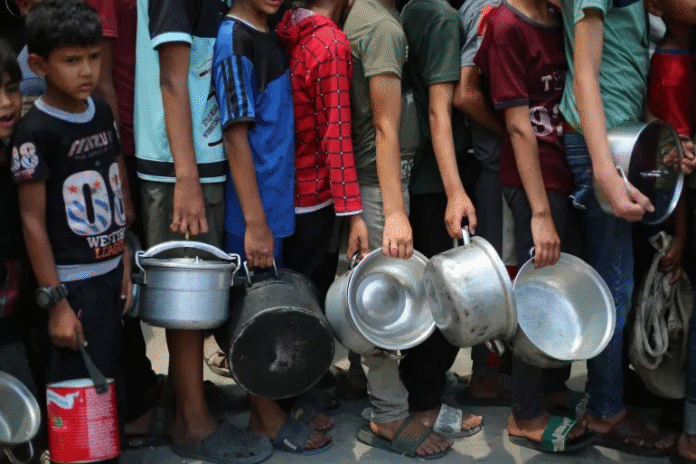The Gaza Humanitarian Foundation (GHF), a US- and Israel-backed aid group, has extended the closure of its four Gaza aid distribution sites for a second day on June 5, 2025, citing “maintenance and repair work.” The decision follows deadly incidents near its Rafah and Netzarim Corridor sites, deepening Gaza’s humanitarian crisis as 2.3 million residents face starvation amid an 11-week Israeli blockade.
Launched on May 26, 2025, the GHF was meant to replace UN-led aid efforts, aiming to prevent alleged Hamas aid diversion. Guarded by American contractors and Israeli forces, its sites in Rafah and central Gaza have faced chaos and violence. Recent attacks near Rafah killed at least 61 people over three days, with the Israeli military claiming it fired warning shots at those deviating from “designated routes.” The GHF denies these incidents occurred near its facilities, but the Red Cross confirmed treating 179 casualties, including 21 dead, from one attack.
The closures, initially announced for June 4 to enhance safety and manage crowds, have left Gazans without critical supplies. The UN warns over two million face hunger, with 500,000 at immediate famine risk. The GHF’s militarized approach, including biometric screening and armed security, has drawn criticism from Oxfam and the World Food Programme, who boycotted its operations for undermining humanitarian principles. Locals report chaotic distributions and dangerous journeys to sites, often under IDF fire.
International outcry has grown, with UN Secretary-General Antonio Guterres demanding an inquiry into the killings. The UK called Israel’s aid measures “inhumane,” while a US-vetoed UN resolution for unhindered aid access sparked further condemnation. The GHF’s claim of distributing two million meals in its first week—unverified and insufficient—has done little to ease concerns.
With no reopening date set and access roads labeled “combat zones” by Israel, fears of further violence loom. The GHF’s reliance on armed security and its distance from population centers complicate aid access for vulnerable Gazans. As the crisis worsens, the international community must push for transparent, safe aid delivery to avert catastrophe. The closures highlight the dire human cost of conflict and a flawed aid model in Gaza.
Sources: Al Jazeera, BBC, Reuters, The Times of Israel, X posts.



